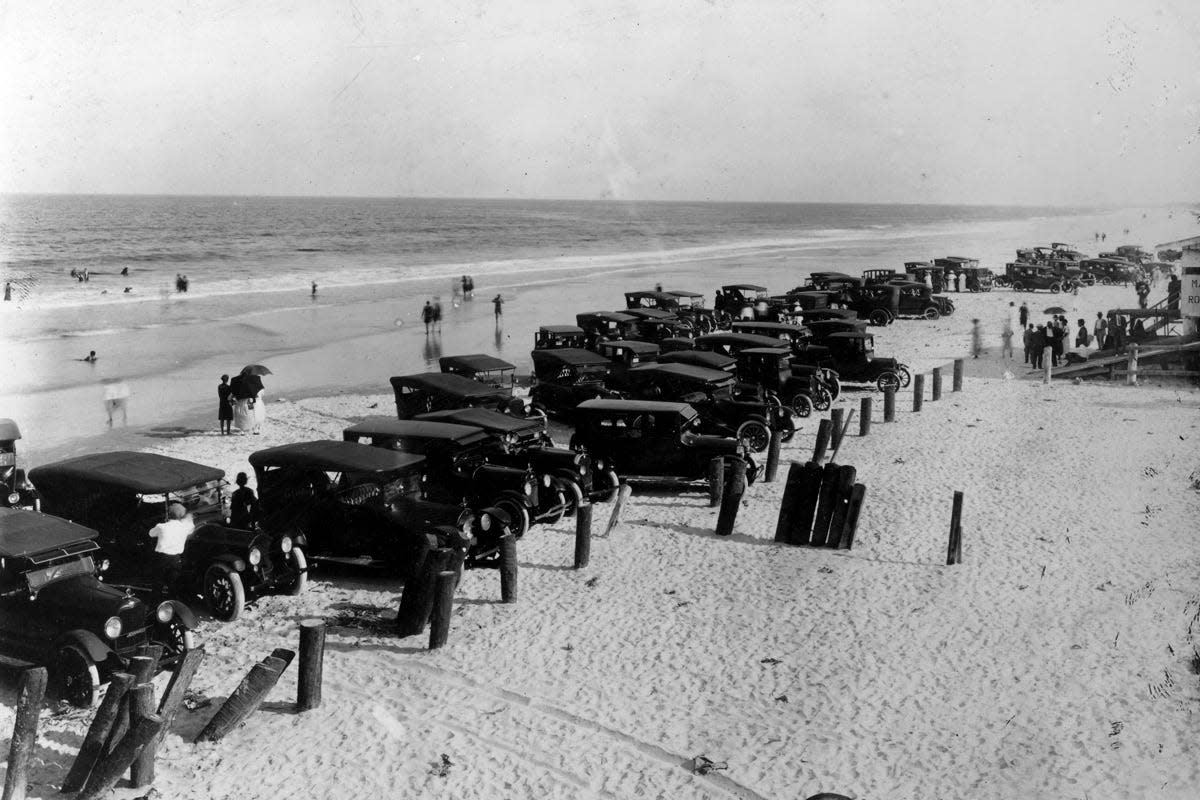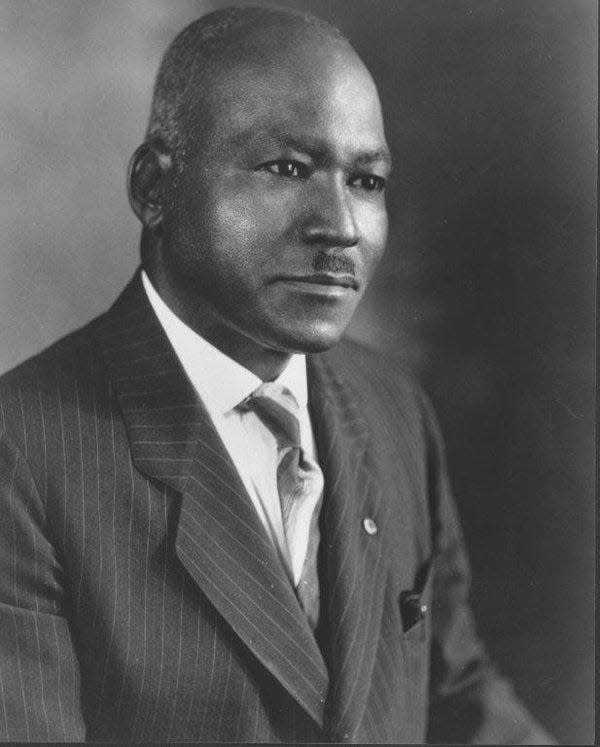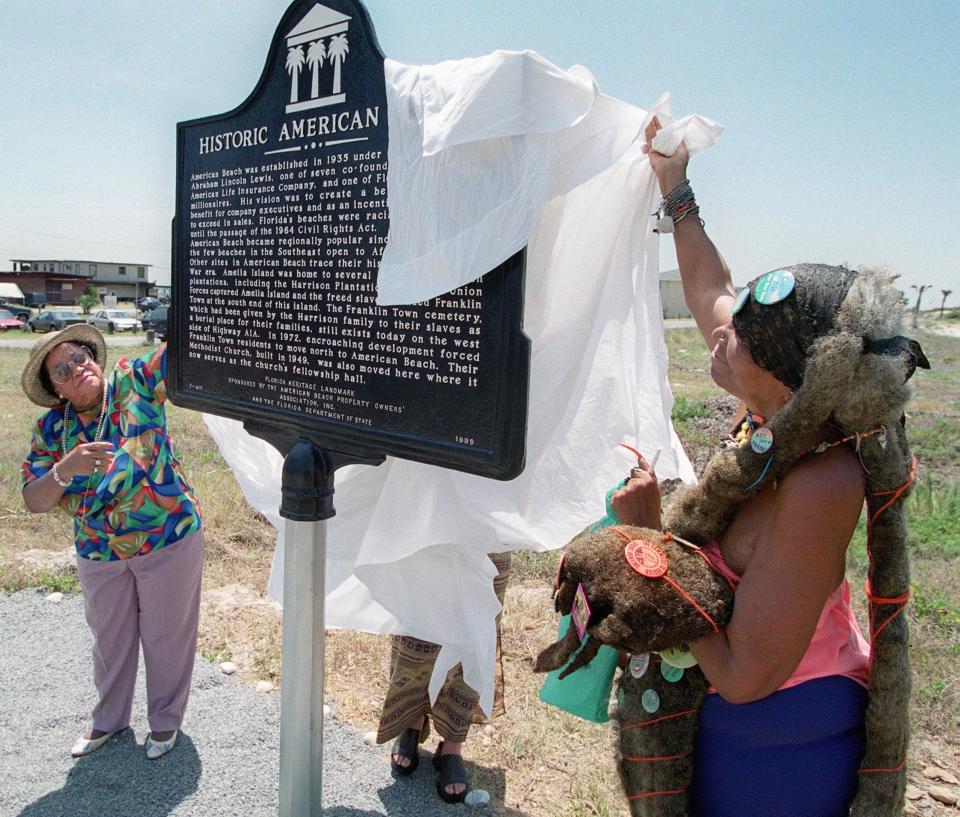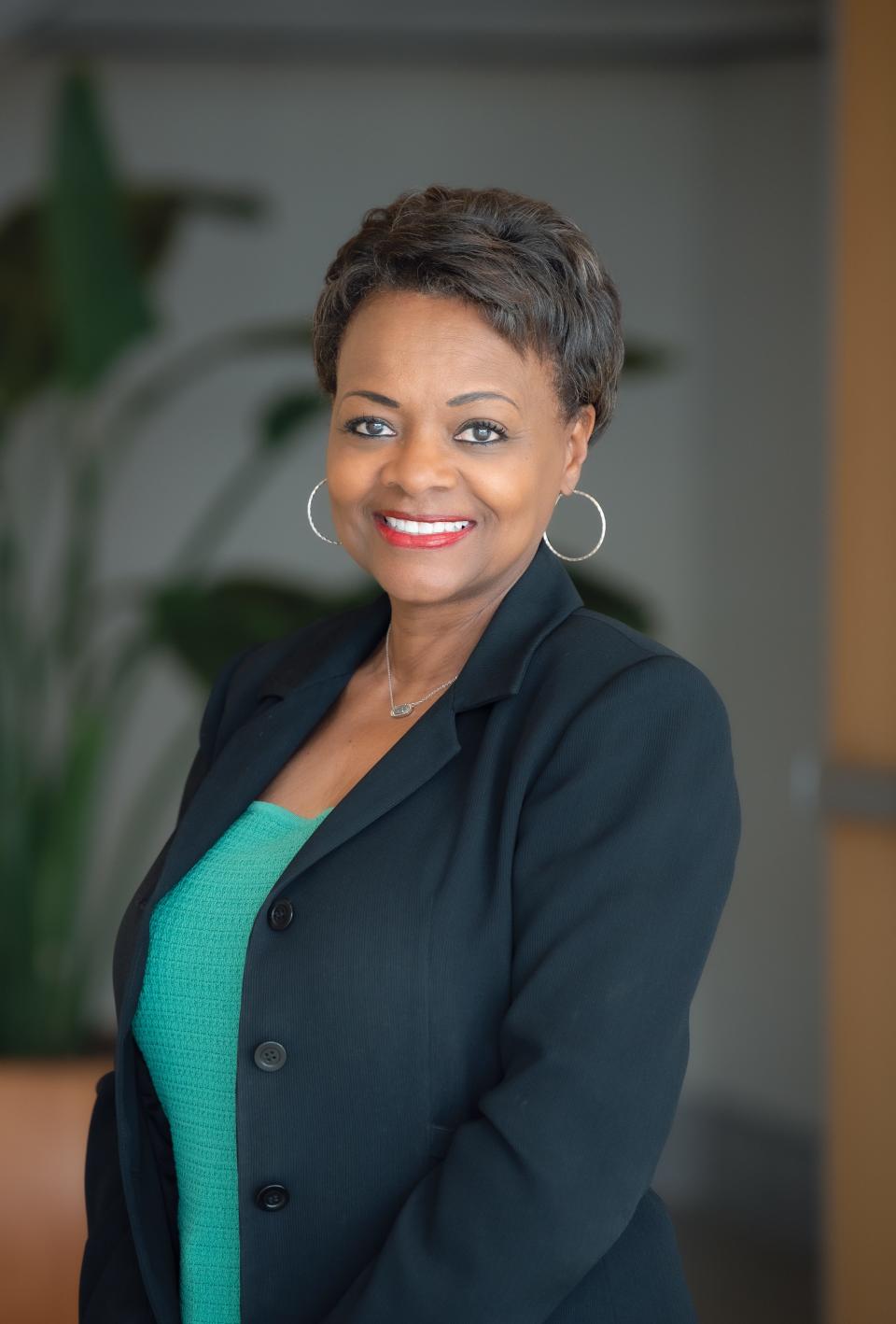Wanda Willis: A.L. Lewis Fund shines a light on the tradition of Black philanthropy

Abraham Lincoln (A.L.) Lewis was Florida’s first Black millionaire, a businessman who founded American Beach in Amelia Island as a haven for “recreation and relaxation without humiliation” for Black people living in the Jim Crow South.
He was also a philanthropist.
Lewis was the co-founder of the Afro-American Life Insurance Co., generously giving to Mount Olive A.M.E. Church on Franklin Street in East Jacksonville and to local Black colleges, including Edward Waters University and Bethune-Cookman. He secured the land for Old Stanton and the Masonic Temple, developed three Black cemeteries in Northwest Jacksonville and founded Lincoln Golf & Country Club in 1926 (the land now included in the subdivisions of Lincoln Estates and Carver Manor).
Matt Soergel:Renowned 'Beach Lady' championed Amelia Island's beach for African Americans
Mark Woods:Campouts a tradition as old as American Beach
Letters:DeSantis has opened dangerous can of worms with educational interference
Our community is richer today because Lewis gave back. As we celebrate Black History Month, his story illustrates the power of Black giving.
Last year 22 community stewards founded a new collective giving initiative at The Community Foundation for Northeast Florida, naming it the A.L. Lewis Black Opportunity & Impact Fund to honor his legacy. The fund will award grants to improve the quality of life in the Black community in three areas: education, economic development and health care.
But another aim is to change the way we think about philanthropy — to make sure everyone is included, not just those with material wealth. At The Community Foundation for Northeast Florida, we believe that everyone has gifts and can be a philanthropist, donating their time, talent, treasure and testimony to the cause of building a better community.

The A.L. Lewis Fund brings to light the untold story of Black philanthropy, which has existed for generations and traces its roots back to the African continent. It comes in many forms — for example, how my grandmother always made sure we put something in the collection plate at church.
In the 1800s, Black philanthropy manifested through cooperatives, saving clubs and giving circles. Black giving is based on deeply held values of collective responsibility for one’s family and community. According to a 2012 study by the W.K. Kellogg Foundation and Rockefeller Philanthropy Advisors, two-thirds of Black households engage in charitable giving that totals roughly $11 billion a year.
Even those with little material wealth have built networks of support through important institutions such as churches, historically Black colleges and universities, as well as Black fraternities and sororities. As a member of Alpha Kappa Alpha sorority, I participate in a national fundraiser for college scholarships; last year we raised more than $1 million in a single day.

In fact, many people involved in this work might not describe it as “philanthropy” because they’re not looking for recognition; it’s simply a tradition going back generations.
But since the original meaning of philanthropy is “love of mankind,” it’s clear how all these acts of generosity do, in fact, meet the definition. I hope that the A.L. Lewis Fund elevates and celebrates the tradition of Black philanthropy — and creates a new vehicle for giving that is open to all who wish to make a difference.
As Dr. Johnnetta Betsch Cole, A.L. Lewis’s great-granddaughter, often reminds us, quoting an African proverb: “When spiderwebs unite, they can tie up a lion.”

Wanda Willis is the vice president of civic leadership at The Community Foundation for Northeast Florida and is a founding member of the A.L. Lewis Black Opportunity & Impact Fund, which is housed at the foundation.
This guest column is the opinion of the author and does not necessarily represent the views of the Times-Union. We welcome a diversity of opinions.
This article originally appeared on Florida Times-Union: A.L. Lewis Fund continues the Black leader's spirit of philanthropy

